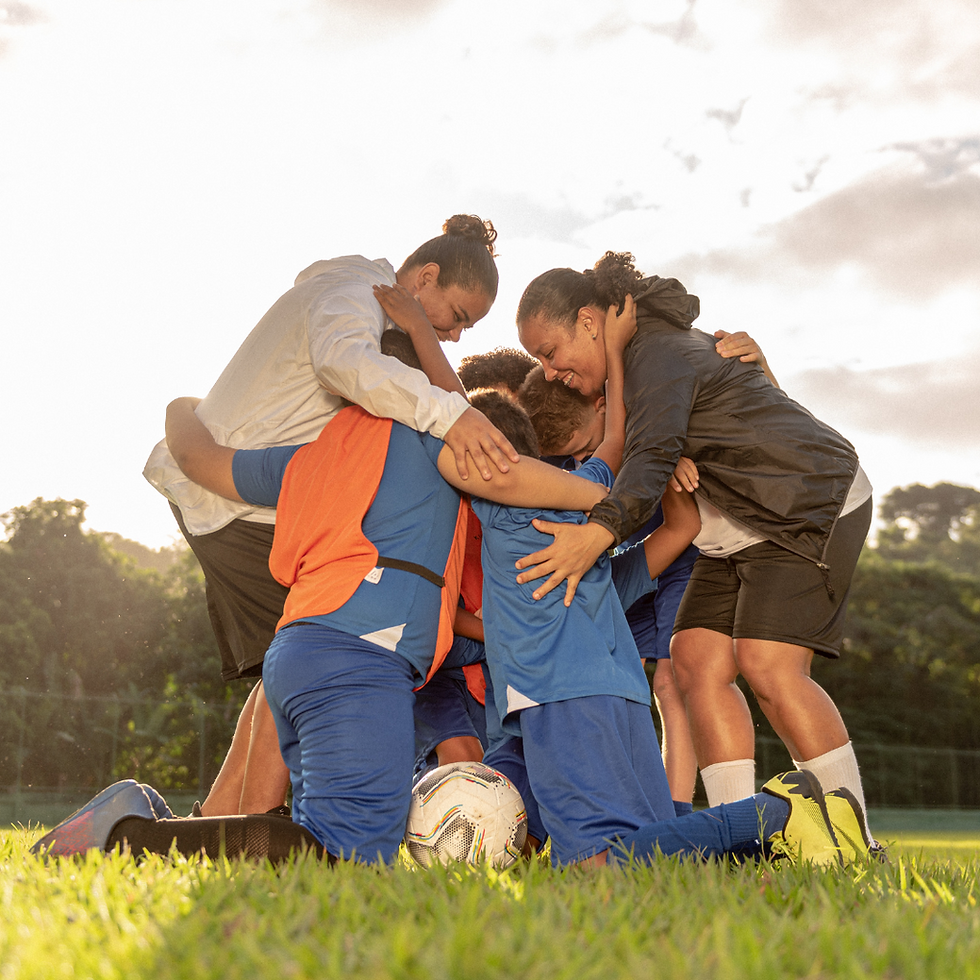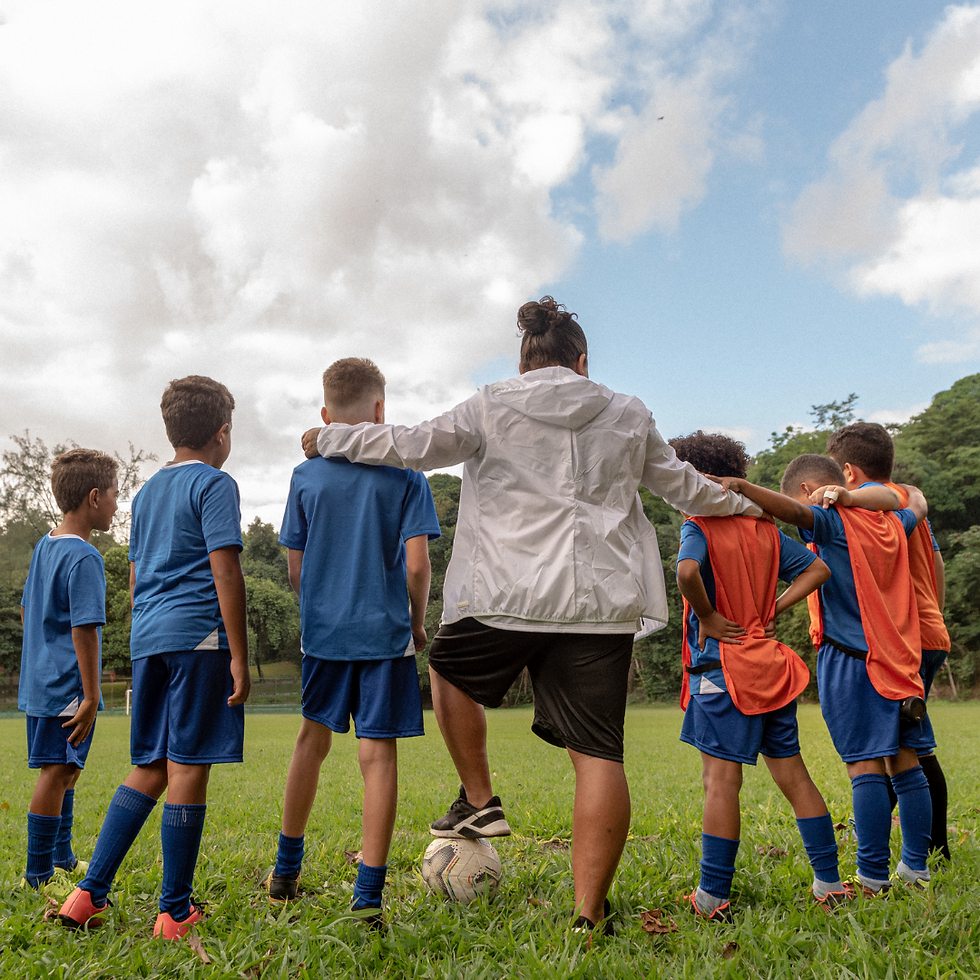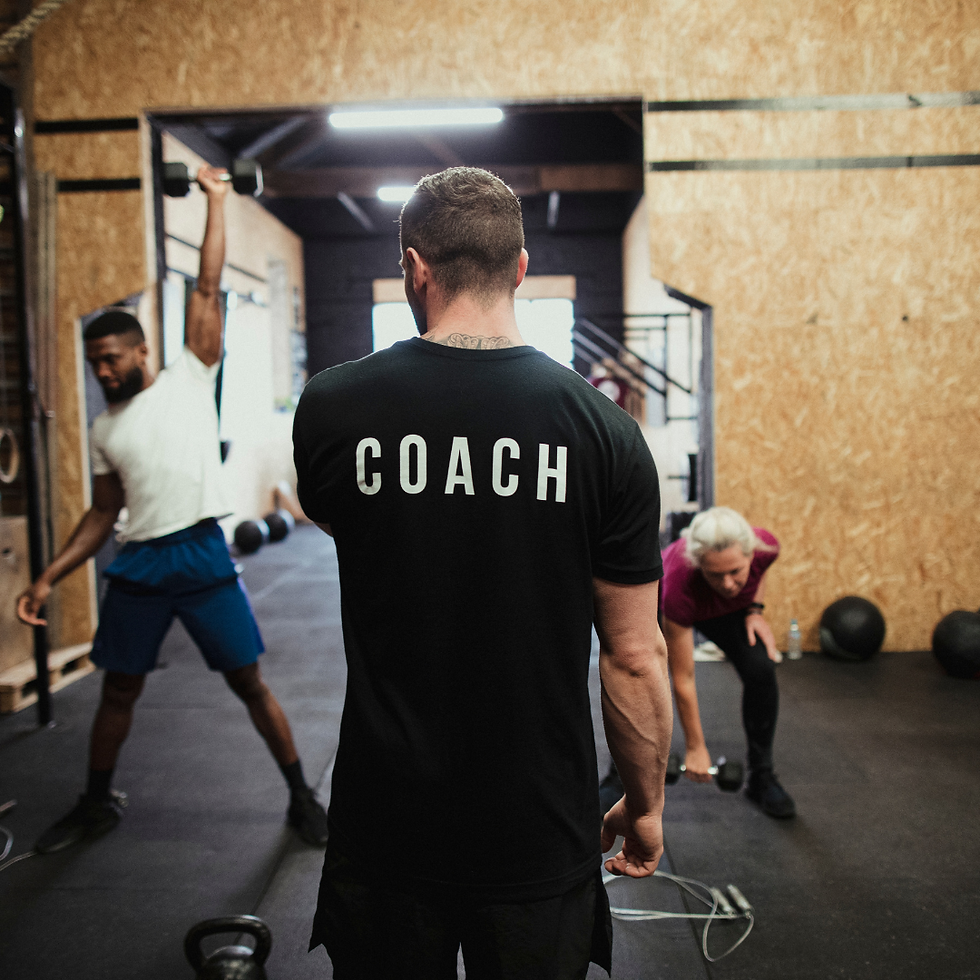Crucial Foundations: The Significance of Support Systems for Athletes On and Off the Field
- Urja
- Jan 29, 2024
- 5 min read

Why is it so important to build a support system for athletes in the sporting environment
An athlete’s support system can include various individuals in their life, for example, their parents, coaches, teammates, friends and significant others. Each of these individuals, knowingly or unknowingly, can impact an athlete’s performance and well-being both on and off the field. The simple question to ask is, why does this happen? Why do incidents in an athlete's social and personal life affect their sporting environment?
Let us look at two cases of different athletes.
Case Study 1: Athlete in a Supportive Environment
Athlete A: Shrey
Supportive Environment:
Caring Coaching Staff: Shrey has a coaching staff that values his well-being, providing constructive feedback and emotional support.
Team Cohesion: His football team fosters a positive and collaborative atmosphere, promoting a sense of belonging and camaraderie. Access to Resources: Shrey has access to sports psychologists, physiotherapists, and nutritionists who contribute to his holistic development.
Communication: Open lines of communication exist between the coach and Shrey, allowing him to express his concerns and receive guidance when needed.
Balanced Approach: The coaching staff emphasizes a balanced approach to training, considering physical, mental, and emotional aspects.
How does this positive and safe environment impact his Performance and Well-Being?
Optimized Performance: Shrey experiences optimized performance due to the comprehensive support system, addressing all facets of her well-being.
Mental Resilience: The supportive environment helps Shrey develop mental resilience, enabling her to cope with stress, setbacks, and competition pressure.
Sustained Motivation: The positive atmosphere motivates Shrey to consistently invest effort in training and competition.
Enhanced Well-Being: Shrey’s overall well-being is high, as he feels valued, supported, and fulfilled within his athletic community.
Case Study 2: Athlete in a Less Supportive Environment
Athlete B: Karan
Less Supportive Environment:
Lack of Communication: Karan’s coaching staff may not prioritize open communication, making it challenging for him to express concerns or receive necessary guidance.
Limited Resources: Karan has limited access to resources such as sports psychologists or specialized trainers, hindering holistic development.
Unsupportive Team Dynamics: Team dynamics may be strained, leading to a lack of camaraderie and a sense of isolation for Shrey, which could cause impediments in his performance.
Inadequate Feedback: Karan may receive inadequate or negative feedback without constructive support, impacting confidence and motivation.
Overemphasis on Results: The coaching approach might prioritise results over the athlete's overall well-being, this in turn would impact Karan’s performance, leading to overtraining and injuries to attain certain results in unrealistic time frames.
Impact on Performance and Well-Being:
Suboptimal Performance: Karan’s performance may suffer due to the lack of comprehensive support and guidance.
Mental Strain: Without a supportive environment, Karan may experience higher levels of stress, anxiety, and decreased mental resilience.
Decreased Motivation: The less positive atmosphere may lead to decreased motivation, affecting Karan’s commitment to training and competition.
Negative Impact on Well-Being: Karan’s overall well-being may be compromised, with potential consequences for physical health, mental health, and personal fulfilment.

So what can we conclude from these two opposing case studies?
The case studies illustrate the significant impact of a supportive and caring environment on an athlete's performance and well-being. Athlete A, benefiting from a comprehensive support system, is likely to experience optimized performance, mental resilience, sustained motivation, and enhanced well-being. On the other hand, Athlete B, in a less supportive environment, may face challenges such as suboptimal performance, mental strain, decreased motivation, and negative effects on overall well-being. These scenarios highlight the importance of creating and maintaining a positive and supportive athletic environment for the holistic development of athletes.
How does creating this safe environment impact an athlete’s performance and overall emotional well-being?
Mental Health and Well-Being: Athletes face various mental and emotional challenges, such as performance pressure, competition stress, and the demands of training. A support system that includes coaches, teammates, sports psychologists, and other professionals can provide athletes with the necessary emotional support, coping strategies, and resources to maintain positive mental health.
Resilience and Coping Skills: Athletes need to develop resilience and effective coping skills to navigate setbacks, injuries, and the ups and downs of competition. A support system helps athletes build these skills by providing guidance, encouragement, and a safe space to discuss and process challenges.
Injury Rehabilitation: Injuries are a common part of sports, and the recovery process can be physically and emotionally demanding. A well-established support system can include medical professionals, physiotherapists, and teammates who assist athletes during rehabilitation, helping them stay motivated and focused on their recovery.
Team Dynamics: A supportive team environment fosters positive team dynamics and communication. When athletes feel supported by their teammates and coaching staff, it can lead to stronger cohesion, improved collaboration, and a shared sense of purpose, contributing to team success.
Performance Optimization: Athletes perform at their best when they have a network of experts guiding them. Coaches, nutritionists, fitness trainers, and sports psychologists can work together to optimize an athlete's performance, addressing the physical, mental, and emotional aspects of their well-being.
Personal Development: Sports provide a unique platform for personal development. A support system helps athletes navigate challenges not only within their sport but also in personal growth. Mentors and role models within the support system can guide life skills, decision-making, and goal-setting.
Reducing Isolation: Athletes often face unique challenges and may experience a sense of isolation due to the intense nature of their training and competition schedules. A support system creates a sense of community, reducing feelings of isolation and fostering a sense of belonging.
Long-Term Success: Sustainable success in sports requires a holistic approach. A robust support system contributes to an athlete's longevity in their chosen sport by promoting physical health, mental well-being, and a balanced lifestyle.
Transitioning Out of Sports: Athletes eventually face the transition out of competitive sports. A strong support system can help athletes navigate this challenging period by providing career guidance, mental health support, and assistance in adapting to life beyond the sports arena.

So if you are reading this as someone who is a part of an athlete’s support system, you must be wondering how you can cultivate a safe and supportive environment for them and this is how-
On the Field:
Positive Coaching Style:
Emphasize constructive feedback over criticism.
Recognize and praise effort, improvement, and sportsmanship.
Foster a growth mindset, encouraging athletes to learn from mistakes.
Organize team-building activities to strengthen relationships.
Promote a sense of unity and camaraderie among team members.
Encourage communication and mutual respect.
Collaborate with athletes to set realistic and achievable goals.
Celebrate individual and team successes, no matter how small.
Focus on the process of improvement, not just the outcome.
Ensure all athletes feel valued and included, regardless of skill level.
Address and discourage any form of discrimination or bullying.
Foster an atmosphere where diversity is celebrated.
Ensure fair and transparent policies regarding playing time.
Communicate openly about expectations and decisions related to team selection.
Off the Field:
Open Communication:
Establish regular communication channels for athletes to express concerns.
Create a safe space for athletes to discuss both personal and athletic matters.
Foster a culture of openness between coaches, athletes, and support staff.
Provide access to mental health professionals and resources.
Normalize discussions about mental well-being.
Educate athletes about stress management and coping strategies.
Offer workshops or programs to enhance life skills (e.g., time management, goal-setting, resilience).
Encourage athletes to pursue educational and career goals alongside their sports pursuits.
Engage with athletes' families to build a support network.
Encourage community involvement and support from local organizations.
Foster a sense of belonging beyond the immediate sports environment.
Prioritize rest and recovery to prevent burnout and injuries.
Encourage a healthy work-life balance, especially for student-athletes.
Provide resources on nutrition, sleep, and overall well-being.
Address conflicts promptly and constructively.
Teach athletes effective conflict-resolution skills.
Promote a culture of respect and understanding among team members.
Provide opportunities for athletes to take on leadership roles.
Foster a sense of responsibility and accountability within the team.
Empower athletes to contribute to decision-making processes.
Recognize and celebrate both athletic and personal achievements.
Create a culture of encouragement and support during both highs and lows.
Build traditions that highlight and honour individual and team successes.

Hence, there are several ways that you can support your athlete both on and off the field. Simply Sport Foundation conducts workshops, seminars and webinars monthly on the importance of understanding the mental health challenges that athletes face and how coaches and support staff can recognise the symptoms early on and create a safe space for the athletes.
Author
Urja Mehta is a national-level footballer who has completed her MSc in Sport and Exercise Psychology from Loughborough University, UK. Being an athlete herself, she is keen on developing and making a difference in the sports industry in India.

Comentarios